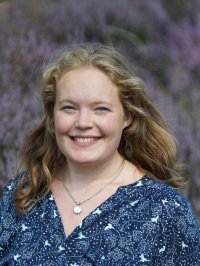
PhD candidates are required to submit six to eight propositions with their thesis that address several societal issues. In this feature, they explain the thinking behind their most thought-provoking proposition. This time it’s the turn of Elysa Overdijk, who got her PhD on 18 October for her study of the defences of plant cells against pathogens.
‘For a new mother or father, there is a lot to get used to. You run up against a lot of things you don’t really understand. Why does my baby cry? Why doesn’t he fall asleep? I noticed, in myself and in colleagues who had babies, that you approach these questions with a scientific perspective. After all, we are scientists, even when we go home. If you encounter a parenting problem you want to understand it and solve it systematically.
Imagine if you had an extra baby that you could include in your tests
My little boy was a very poor sleeper, and he really only wanted to sleep in the baby carrier. I tried everything during that period. Occasionally he would fall asleep in the pram, but then he wouldn’t again: there was just no pattern to it. Imagine you had a control, I thought. An extra baby that you could include in your tests! But of course that’s not how it works with children. Even if you had identical twins, it still wouldn’t be scientifically ethical.
It is tough doing research when you have young children, but it has its advantages as well. When I put my daughter to bed, I sometimes lie beside her for an hour, waiting in the dark until she falls asleep. I came up with my propositions on one such evening. You use the time you have productively.’
